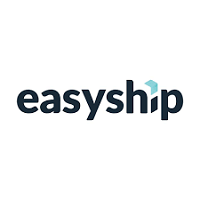What Is Order Fulfillment Software?
Order fulfillment software is an effective tool for streamlining the process of fulfilling customer orders. It automates inventory management, order processing, and shipping, helping firms to handle enormous numbers of transactions with little errors or delays. One of the most important advantages of order fulfillment software is its ability to interface with several sales channels and third-party providers.
This means that orders from many sources, including online marketplaces, websites, and physical stores, may be conveniently synced and controlled on a single platform. Furthermore, order fulfillment software enables real-time visibility into inventory levels, allowing firms to correctly estimate demand and avoid stock outs. This not only reduces overstocking but also ensures that consumers receive their orders on time, resulting in greater customer satisfaction and loyalty.
Another key feature of order fulfillment software is its ability to automate the shipping process. It can print shipping labels, track items, and provide delivery estimates, allowing firms to meet their claimed delivery schedules. Furthermore, order fulfillment software frequently includes reporting and analytics features, giving organizations with useful insights into their order fulfillment process. This information can be utilized to discover areas for improvement, streamline procedures, and make better business decisions.
What Are The Recent Trends In Order Fulfillment Software?
The world of order fulfillment has changed dramatically in recent years as new technology and client expectations have emerged. As a result, order fulfillment software has undergone major developments and changes to meet the demands of current enterprises.
Let's look at some of the most recent trends in order fulfillment software that you should be aware of as a purchaser.
1. Automation: With the advent of ecommerce and omnichannel shopping, businesses are receiving an increasing volume of orders, making manual fulfillment practically impossible. As a result, many organizations prioritize automation, including order fulfillment software. Automation saves organizations time, reduces errors, and increases efficiency by automating everything from picking and packaging to real-time inventory management.
2. Integration With Other Systems: Order fulfillment software is no longer a stand-alone option. It now interfaces with other systems, including inventory management, shipping, and e-commerce platforms, to provide a more efficient and faster order fulfillment process. This connectivity assures accurate and up-to-date information across all systems, decreasing the possibility of errors and delays.
3. Mobile Applications: Given the growing popularity of mobile devices, it's not surprising that order fulfillment software now includes mobile applications. These applications let warehouse managers and employees to access and manage orders, inventory, and shipment on the go, making the process more effective and easy.
4. Real-Time Tracking: Customers increasingly expect to know the status of their orders at all stages of the process. Order fulfillment software now includes real-time tracking, allowing clients to receive accurate and up-to-date information regarding their orders. This not only increases client happiness but also lowers the number of customer support requests for organizations.
5. Artificial Intelligence And Machine Learning: Artificial intelligence (AI) and machine learning (ML) are becoming increasingly popular in the order fulfillment process. AI and machine learning algorithms can evaluate data to estimate demand, optimize delivery routes, and even recommend the best packing alternatives, lowering costs and increasing efficiency.
Benefits Of Using Order Fulfillment Software
Order fulfillment software is a vital tool for organizations of all kinds that handle a high volume of orders. This program automates the entire fulfillment process, from accepting orders to delivering finished products to clients. It helps firms save time, labor, and resources by streamlining the order management process. One of the primary advantages of adopting order fulfillment software is enhanced efficiency.
This program allows firms to track all of their orders in one consolidated system, minimizing the need for manual data entry and lowering the chance of errors and delays. This enables firms to fulfill orders quickly and precisely, leading to speedier order processing and more customer satisfaction. Another benefit of employing order fulfillment software is better inventory management.
This software tracks inventory levels in real time, giving businesses up-to-date information on available goods. This prevents firms from overstocking or running out of products, which can result in lost sales and disgruntled customers. Businesses can save money on storage and shrinkage by improving their inventory management. Order fulfillment software also gives firms more insight and control over their orders.
Businesses can watch and monitor the whole fulfillment process, from order processing to shipment and delivery, all from a single dashboard. This gives organizations vital insights into their operations, allowing them to detect bottlenecks or inefficiencies and make required changes to improve their fulfillment process. Furthermore, adopting order fulfillment software might result in cost reductions for firms.
Businesses that automate the order fulfillment process can reduce the need for manual labor and eliminate the danger of human error. This can lead to significant cost reductions in the long run. Furthermore, order fulfillment software frequently connects with other corporate systems, such as accounting and customer relationship management software, which increases productivity and lowers costs.
Finally, adopting order fulfillment software can help firms improve the overall customer experience. Businesses can ensure that their customers receive their orders on time and satisfactorily by implementing speedier order processing, accurate inventory management, and prompt delivery. This can result in improved client loyalty and favorable word-of-mouth, allowing businesses to attract and keep more customers.
Important Factors To Consider While Purchasing Order Fulfillment Software?
Order fulfillment is an important operation for every firm because it directly affects customer happiness and retention. In today's fast-paced e-commerce environment, having the correct order fulfillment software is critical to optimizing operations and satisfying client needs. However, with so many options available on the market, selecting the proper software can be difficult.
To make an informed decision, below are the essential elements to consider when selecting order fulfillment software:
1. Integration Capabilities: A strong order fulfillment software should work easily with your existing systems, including your e-commerce platform, inventory management software, and shipping carriers. This will reduce data duplication and inaccuracies, save time, and boost efficiency.
2. Scalability: As your company expands, your order volume will rise. Ensure that the program can handle a higher volume of orders without affecting performance. Also, examine whether the program includes add-ons or customization options to meet your future demands.
3. Automation Features: Manual order processing can be time-consuming, error-prone, and impede your company's growth. To save time and prevent errors, look for software that includes automation features such as batch processing, automatic order routing, and automatic shipping label generation.
4. Inventory Management: Keeping track of inventory levels is critical for ensuring timely order fulfillment. The program should include tools for real-time inventory tracking, low stock warnings, and easy replenishment.
5. Reporting And Analytics: To make data-driven decisions, the program should provide extensive reporting and analytics capabilities. This will allow you to see a comprehensive picture of your company's performance, identify areas for improvement, and measure key performance indicators (KPIs).
6. Usability: Even non-technical users should find the product straightforward to use and navigate. A steep learning curve might result in delays and errors, harming your customers' overall experience.
7. Customer Assistance: A dependable and responsive customer support service is essential, especially if you run into any problems while using the software. Look for a vendor with several support channels and a track record of great customer care.
8. Pricing: The pricing of the software is another key aspect. It's critical to understand the software's pricing structure and whether there are any additional payments for extra features or support.
What Are The Key Features To Look For In Order Fulfillment Software?
When looking for the best Order Fulfillment Software for your company, there are a few crucial features to examine to ensure that you make the greatest option for your requirements.
1. Inventories Management: One of the most important aspects of any Order Fulfillment Software is its capacity to efficiently manage inventories. This features real-time stock level tracking, automated inventory updates when orders are completed, and the option to set reorder points and receive notifications when items need to be refilled.
2. Order Processing: Any successful firm need a well-functioning order processing system. Look for software that can automate the entire order process, including order entry and processing, selecting, packaging, and shipping. This will help you reduce delays and errors while also ensuring that your clients receive their orders on schedule.
3. Integration Capabilities: It's critical to select software that can work with your current systems, such as your e-commerce platform or accounting software. You will save time and effort by automating data transfer and removing the need for human data entry.
4. Shipping Options: Your Order Fulfillment Software should provide a range of shipping options, such as USPS, UPS, FedEx, or DHL, to meet your clients' needs. This will allow you to provide your consumers the most competitive shipping costs and delivery alternatives, thereby improving their overall experience.
5. Analytics And Reporting: The ability to track and analyze your sales and fulfillment data is critical for making sound business decisions. Look for software that includes thorough analytics and reporting options to assist you understand your company's performance.
6. Customization And Flexibility: Because each organization is unique, you should select Order Fulfillment Software that can be tailored to your individual requirements. Look for software that lets you add or change features as your company expands and changes.
7. Customer Support: You may encounter technical difficulties or have queries regarding the software. Check that the software vendor provides dependable customer assistance to help you with any issues or concerns. By taking these crucial qualities into account, you can choose the best Order Fulfillment Software for streamlining your order processing, increasing customer satisfaction, and eventually improving your entire business success.
Why Do Businesses Need Order Fulfillment Software?
Order fulfillment software has become an essential component of running a successful business in today's fast-paced market. It automates and streamlines the entire order fulfillment process, from receipt to shipment to clients. So, why do firms want order fulfillment software?
Here are several solid reasons:
1. Efficient Order Management: As a company grows, managing orders manually becomes time-consuming and error-prone. Order fulfillment software allows you to effortlessly track and manage orders from various sales channels, including e-commerce platforms, marketplaces, and physical storefronts. It avoids the possibility of overselling, double booking, or shipping problems, resulting in customer satisfaction.
2. Faster Order Processing: In this age of immediate gratification, customers expect their orders to be processed and sent swiftly. Order fulfillment software automates the entire fulfillment process, lowering the time required to fulfill an order. It automatically generates selection lists, packing slips, and shipping labels, saving your team important time.
3. Cost-Effective: The costs of human error or slowness in order processing can quickly accumulate. Businesses can decrease labor costs and avoid costly mistakes by using order fulfillment software that is automated and accurate.
4. Real-Time Inventory Management: One of the primary benefits of adopting order fulfillment software is real-time inventory management. It enables you to monitor inventory levels and minimize overselling or supply shortages. Some software also provides forecasting and restocking recommendations to help you keep on top of inventory management.
5. Improved Customer Experience: When orders are completed swiftly and precisely, customers are more likely to be pleased with their purchasing experience. Order fulfillment software enables you to provide clients with real-time order updates, tracking information, and timely delivery, resulting in a pleasant customer experience.
6. Scalability: As your organization expands, you'll need a system that can keep up with demand. Order fulfillment software is scalable, allowing you to handle large order volumes without the need for extra labor or resources. It also allows organizations to grow into new sales channels and markets with ease.
How Much Time Is Required To Implement Order Fulfillment Software?
The implementation time for order fulfillment software varies depending on a number of factors, including the complexity of your business operations, the size of your organization, and the level of customization needed. On average, it takes between a few weeks and several months to fully integrate order fulfillment software. Before beginning the implementation process, you should do a thorough analysis of your present business processes to determine how the software can be incorporated into your operations. This first phase is critical since it helps identify potential barriers and ensures a smooth and efficient deployment.
Next, the software must be configured to meet your specific business demands. This can include creating product catalogs, customer databases, order processing rules, and other essential customizations. The time necessary for this step varies according to the intricacy of your business and the software's capabilities. Once the configuration is complete, the implementation team will run tests and make any necessary changes to ensure that the product works as intended.
This testing process can last a few weeks and entails running multiple scenarios to check that the software can handle all types of orders, client requests, and other critical operations. Beyond the technological requirements, you must also consider your employees' training and onboarding. This may include educating them about the software's new processes and features, as well as offering hands-on training to ensure they are proficient in its use.
What Is The Level Of Customization Available In Order Fulfillment Software?
Order fulfillment software is a strong tool that allows organizations to easily manage and automate their order fulfillment processes. The level of customisation offered by various order fulfillment software is a significant factor that distinguishes them. Customization in order fulfillment software refers to the capacity to adapt and tailor the software to meet the specific demands and processes of a company.
At its foundation, order fulfillment software includes conventional functions like inventory management, order tracking, and shipping capabilities. The level of customization possible varies per software. Some may only allow for minimal customization, but others provide a significant degree of flexibility and adaptability. One of the most important factors to consider when assessing order fulfillment software customization options is the ability to design workflows and processes.
This includes the ability to build and modify various warehouse locations, order statuses, and picking and packaging procedures. This enables firms to optimize their fulfillment processes and adjust them to their individual requirements. Furthermore, order fulfillment software that is highly customizable enables organizations to add unique fields and data points to orders, items, and customers. This is especially useful for organizations that deal with unique or specialized products, since having specific fields to track and manage them helps speed up the fulfillment process.
Another critical factor to consider is the capacity to integrate with other systems and applications. Customized order fulfillment software should integrate seamlessly with popular applications like shipping carriers, accounting software, and eCommerce platforms. This not only increases flexibility, but also ensures that data flows smoothly throughout the fulfillment process. Furthermore, customisation in order fulfillment software includes the user interface. Businesses should be able to tailor the layout, design, and colors to their branding and make it more user-friendly for their employees.
Which Industries Can Benefit The Most From Order Fulfillment Software?
Order fulfillment software is a powerful instrument that may significantly improve corporate efficiency and production across a wide range of sectors. Its advanced features and capabilities enable to automate and streamline the order fulfillment process, resulting in faster delivery times, greater accuracy, and higher customer happiness.
The following industries can benefit the most from order fulfillment software:
1. E-commerce: As online shopping becomes more popular, e-commerce enterprises face ongoing pressure to fulfill orders promptly and precisely. Order fulfillment software can interact with numerous sales channels and automate operations such as order processing, inventory management, and shipping, allowing e-commerce enterprises to handle a large volume of orders efficiently.
2. Retail: In the retail industry, having the correct inventory at the right moment is critical. Order fulfillment software may monitor inventory levels in real time, give alerts for low-stock items, and refill inventory automatically as needed. This enables retailers to prevent stockouts, avoid overstocking, and maintain ideal inventory levels, resulting in higher sales and profitability.
3. Manufacturing: Order fulfillment software can significantly improve the manufacturing process. It can automate inventory management, track production progress, and deliver real-time order and shipment status updates. This enables producers to optimize operations, shorten lead times, and provide high-quality products to customers on time.
4. Wholesale And Distribution: Wholesale and distribution organizations frequently deal with complex supply chains that include several suppliers, warehouses, and customers. Order fulfillment software can centralize and optimize these procedures, resulting in improved inventory management, faster order processing, and more efficient supply chain management.
5. 3PL Providers: 3PL providers provide outsourced logistics services to businesses, with the primary purpose of ensuring that goods are delivered on time and accurately. Order fulfillment software can assist 3PLs do this by offering end-to-end visibility into the supply chain, automating manual operations, and increasing customer communication.
Conclusion
Finally, selecting the correct order fulfillment software is critical for the success of any organization. With the correct features and capabilities, this software can help you streamline order processing and increase customer satisfaction. When deciding which software to invest in, keep your individual business demands in mind and prioritize the features that will assist your operations the most.
It is also vital to consider your budget and look for options that strike a fair balance between cost and value. Don't forget to consider the software provider's reputation and user feedback. Look for a reputable and dependable organization that provides excellent customer service and a track record of successful implementations. Finally, the ideal order fulfillment software for your organization will be user-friendly, efficient, and tailored to your individual requirements. By carefully examining your alternatives and picking software that matches your needs, you can expedite your order fulfillment process and propel your business to new heights.






















